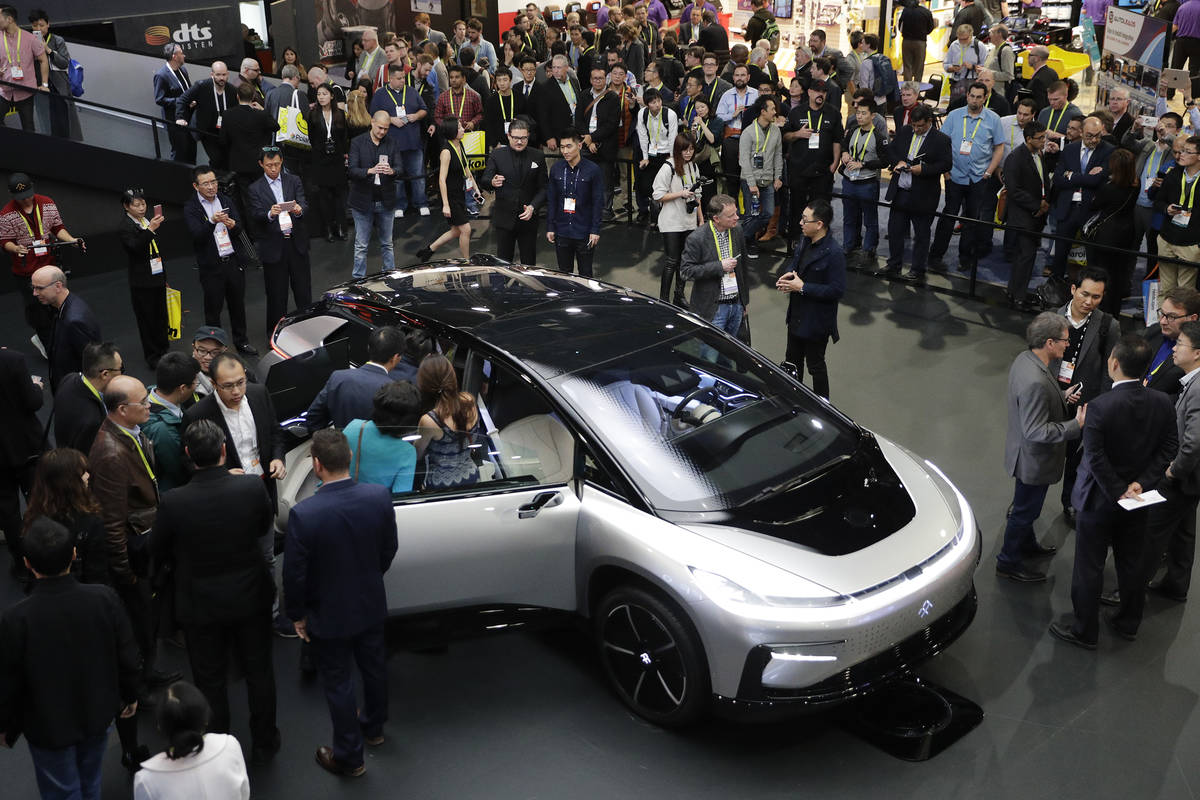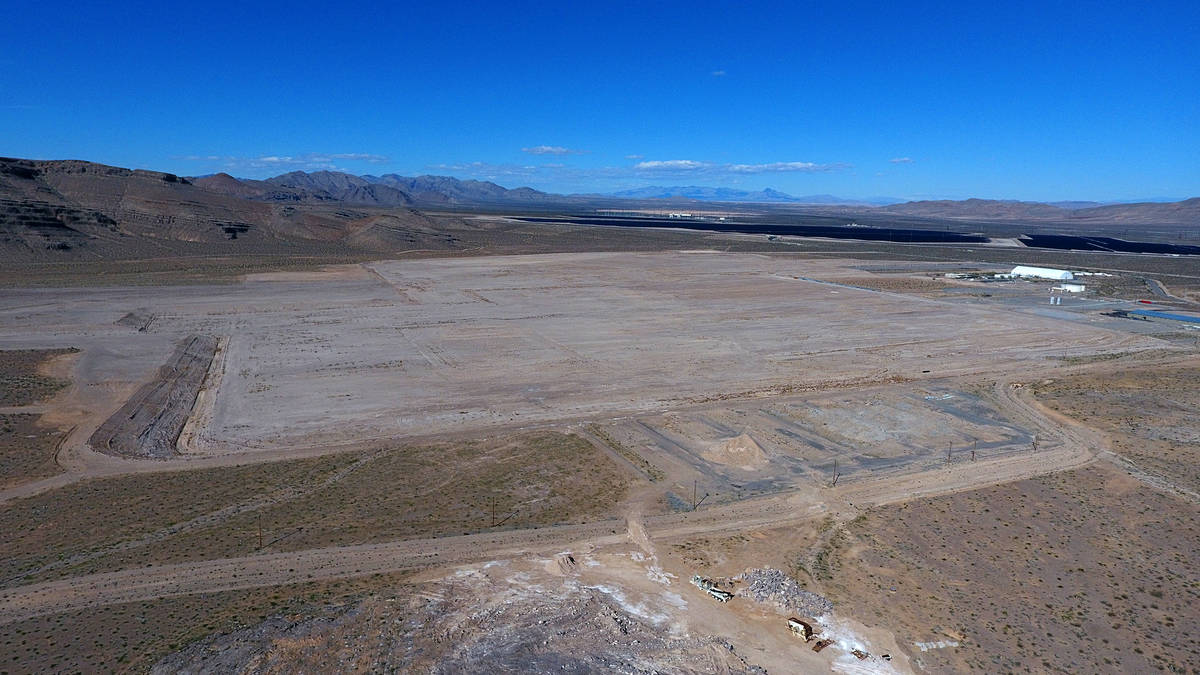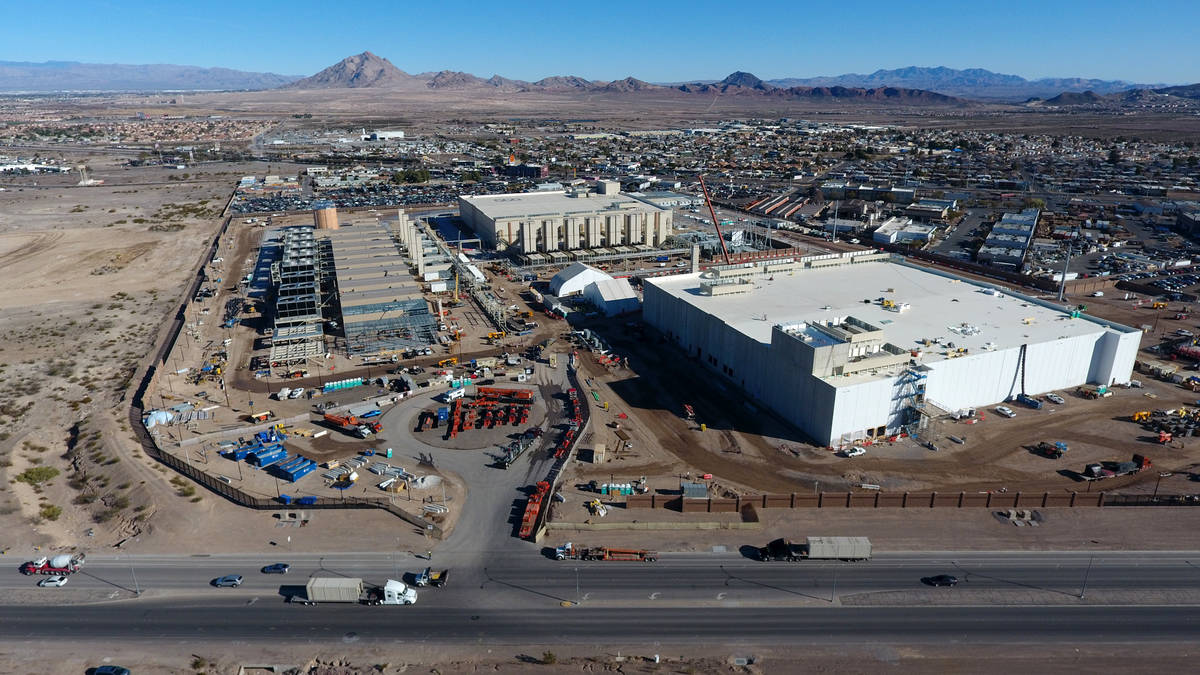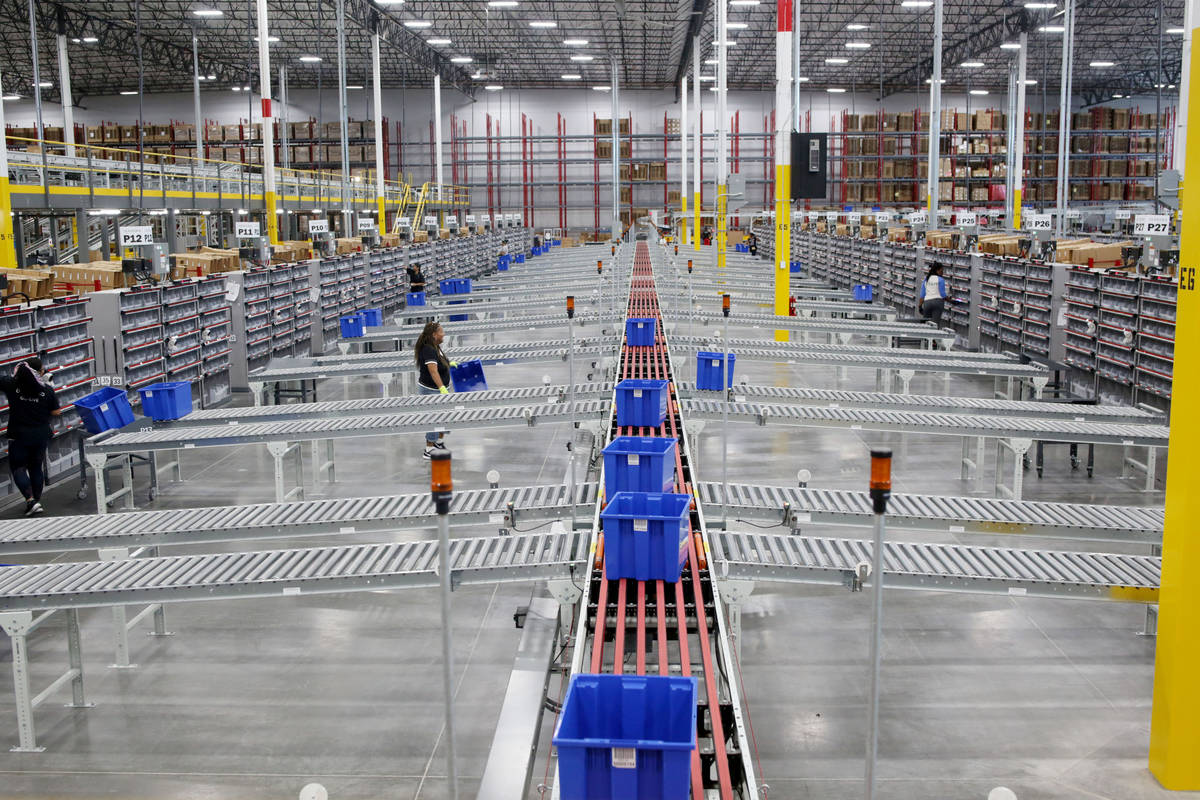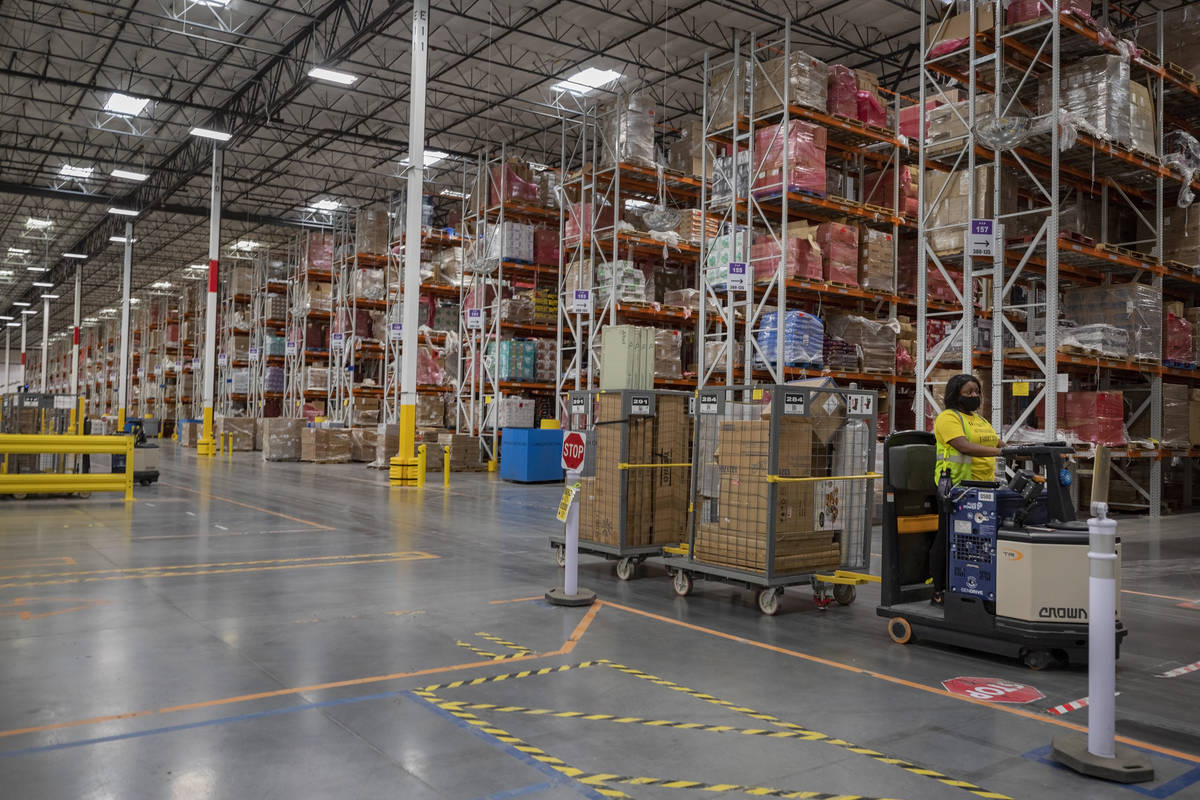Las Vegas faces a steep climb in diversifying away from tourism
Las Vegas is known around the world as a place to party and gamble in flashy megaresorts, with tens of millions of visitors arriving annually.
Its massive tourism industry also fuels the local economy — and the risks of relying so heavily on this line of business have been painfully exposed by the fallout from the coronavirus pandemic.
The outbreak has kept people home and away from crowds for fear of getting infected, devastating tourism, saddling Las Vegas with huge job losses and reminding local officials yet again of the need for a more-diversified employer base.
Business boosters and real estate pros often cite Southern Nevada’s low taxes and cheaper cost of living as reasons for people or companies to move here, and the valley has indeed lured new businesses in recent years, helped in many cases by state tax breaks. But the region has long lacked some key ingredients that workers and employers often want, crimping officials’ ability to attract firms.
The valley has public buses but overall is light on mass transit, and the share of Clark County’s population that graduated from college is lower than the national average, census data shows.
Moreover, persuading families to move here isn’t helped by Las Vegas’ party-town image, crafted by design to boost tourism (“What happens here, stays here”); Nevada’s low-performing public schools; and the state’s shortage of doctors.
Virginia, for instance, has invested in education, mass transit and health care, the things that “make you want to live there,” North Las Vegas City Manager Ryann Juden said.
By comparison, when Nevada has a special session of the Legislature, the “first thing they want to talk about” is cutting funding for education, he said.
State lawmakers cut education funding during a July special session, part of broader spending reductions to cope with a $1.2 billion budget shortfall caused by the pandemic’s devastating financial effects.
Nevada’s K-12 education system was at the bottom of the barrel even before the pandemic. Last year, Education Week ranked Nevada second lowest in the country for public education — the first time in four years it wasn’t dead last.
‘Money in one stock’
To help lure companies here, officials have zeroed in on their bottom lines, authorizing hundreds of millions of dollars in tax incentives over the past decade.
From 2010 through 2019, state officials approved a combined $728.7 million in tax breaks for 184 companies that were planning new ventures in Clark County. The firms reported they would create a total of more than 33,000 jobs, according to the Governor’s Office of Economic Development, which could not provide the number of jobs that were actually created.
In recent years, Southern Nevada has landed distribution centers for companies such as online retail giant Amazon and baby products maker The Honest Co., a Google data-center project, and other non-casino ventures. But its bread-and-butter industry still dominates, leaving Las Vegas’ economy prone to extreme booms and busts.
UNLV public policy professor Robert Lang noted the tourism industry itself has diversified — resort operators have rolled out more places to spend time and money outside casino floors — but the economy overall has lagged behind.
“We’ve got all of our money in one stock,” Juden said.
‘Spotty economic planning’
Officials have tried for decades to diversify Las Vegas’ employer base, and they ramped up those efforts after the economy tanked following the crazed real estate market’s implosion, sparking the Great Recession.
In 2011, then-Gov. Brian Sandoval put economic development efforts under his authority with the creation of GOED, whose board votes on tax break applications by companies looking to do projects in Nevada.
The office’s formation reflected “an unusually serious discussion” among Nevada leaders about the nature of the state’s economy, the need for diversification and how to “unleash” innovation to drive growth, according to a 2011 report by research groups including Brookings Mountain West.
Nevada’s “core strength for economic development” was its “business-friendly environment,” including low taxes and light regulation. But the state also had “spotty economic planning and cooperation,” a weak ability to commercialize technology and “substantial workforce skills shortfalls,” the report said.
Under Sandoval, new employers and projects outside the casino industry came to Nevada, including Tesla’s battery plant east of Reno. The Silicon Valley electric-car maker landed $1.25 billion in tax incentives for the multibillion-dollar factory at a 2014 special session of the Legislature.
The next year, state lawmakers again convened a special session for a proposed electric-car plant. But that project, in North Las Vegas, went nowhere.
Faraday Future drew up plans for a 3.4 million-square-foot factory that could produce up to 150,000 electric vehicles annually. The Legislature approved a $335 million incentive package, though at the time Faraday didn’t have a publicly identified CEO and hadn’t started selling cars.
Faraday broke ground in Apex Industrial Park in 2016. But construction stalled amid reports of financial troubles, and the company bailed on the project in 2017, saying it wanted an existing facility instead.
The next month, it leased a 1 million-square-foot former tire plant in central California.
Faraday sold its 900-plus acres of land at Apex last year to a Canadian investment firm for nearly $17 million, less than half the initial asking price.
Sandoval, the new president of University of Nevada, Reno, was unavailable for an interview, the school said.
What’s next?
Faraday’s project had sparked hopes it would spur more action in Apex, which has plodded along for years with little development amid a shortage of utility service.
In summer 2018, when city officials announced a groundbreaking ceremony was held for a 12-mile surface water pipeline to Apex, the news release declared: “Decades-old problem solved: Water coming to North Las Vegas’ Apex Industrial Park.”
Southern Nevada can’t overhaul its economy overnight, even if officials wanted to. Economic development is a competitive business, and the process — persuading a company to move or expand here, obtaining approvals and permits, possibly building a facility from scratch, staffing up, and then opening shop — takes time.
Bob Potts, deputy director of GOED, said the region needs a major industrial park south of Las Vegas not far from the California border, putting facilities closer to the trucks coming in on Interstate 15.
But, he noted, “you don’t build those kinds of things overnight.”
Contact Eli Segall at esegall@reviewjournal.com or 702-383-0342. Follow @eli_segall on Twitter.
North vs. South
Reno might be the casino capital of Northern Nevada, but its economy doesn't depend nearly as much on tourism as Las Vegas does.
And now, several months into the coronavirus pandemic, its economy isn't suffering nearly as much either.
The Las Vegas-area's unemployment rate in October, 13.8 percent, was more than double the Reno area's, at 6.3 percent, state officials recently reported.
Casino-heavy Southern Nevada, which comprises the bulk of the state's population, has long relied on tourism to fuel the economy. The Reno area has better spread out its employer base, thanks in no small part to the Tahoe Reno Industrial Center in Storey County east of the city.
Developed by Storey County Commissioner and brothel owner Lance Gilman, the 107,000-acre business park is home to numerous companies, including Google, Switch and Tesla, and has benefited from state-approved tax breaks for projects there.
From 2010 to 2019, state officials approved more than $1.3 billion worth of tax incentives for 39 companies with plans for ventures in Storey County, comprising a projected total of just over 12,000 jobs, according to data from the Governor's Office of Economic Development.
TRIC fueled the huge incentive total, according to GOED deputy director Bob Potts.
Overall, around 28 percent of the Las Vegas-area's labor market worked in leisure in hospitality early this year before the pandemic hit, compared to 15 percent in the Reno area, state data shows.





